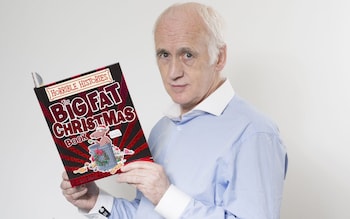Most people won’t know the name Mariana Mazzucato. Yet the economist is about to have a significant impact on their lives.
The University College London (UCL) academic’s signature idea – “mission-driven” government – is about to be put into practise by Sir Keir Starmer following Labour’s landslide election victory.
The new Prime Minister has set out five “missions” across energy, health, crime, education and the economy. Achieving goals across each category will be at the heart of his new government.
Starmer was inspired by Mazzucato, a Left-leaning academic who has spent the past decade championing this “mission” driven approach through lectures, numerous papers and four books – with a fifth one in the works.
She believes governments must tap into the spirit of the Apollo programme – where US space agency Nasa marshalled the private sector to put a man on the Moon – to tackle the biggest issues of the day.
That means a more muscular state that is willing to intervene in a host of industries, an approach that remains controversial among many of Mazzucato’s peers.
Mission-driven ethos
Nevertheless Labour has adopted her mission-driven ethos with gusto. Starmer met with Mazzucato as far back as February 2021, at UCL’s Institute for Innovation and Public Purpose, which she founded.
“He came in and said, ‘I love your ideas and I want to talk to you,’” Mazzucato recalls. “And so I sat with him for two hours and we talked about all these things, just the two of us.”
Two years later, Starmer called a major press conference in Manchester and announced his plan to “transform the way Britain does its business, from top to bottom” using Mazzucato’s “mission-driven government” concept.
“We’ll modernise central government, so it becomes dynamic, agile, strong and, above all, focused,” he told a gathered audience.
The most notable expressions of this new approach so far are Labour’s proposals to set up Great British Energy and a National Wealth Fund.
How does it feel to have your ideas championed by the Prime Minister?
Mazzucato, who speaks in rapid-fire, effervescent bursts, is yet to be satisfied. She believes that Starmer has not fully grasped how to put her ideas into practice, even if he has been an enthusiastic adopter of her language.
“They’re using the concept of missions. But ... that’s not what I mean. The NHS is not a mission. Growth is not a mission, right?
“I’m happy they’ve taken this approach and I think these can become concrete missions that change how government works. But if they don’t – if it’s just old wine in new bottles – and this ends up being, at best, more money to the NHS, more police on the street, some patchy policies here and there that don’t really transform the economy, then it’s not going to work.”
According to Mazzucato, the state should set clear, ambitious goals but stay agnostic on how to get there. This involves placing bets on multiple technologies that might work – as Nasa did – learning from mistakes quickly and, crucially, sharing rewards (not just risk) with the businesses that receive support.
“With Apollo, beating the Russians was the challenge,” she says. “But they would not have done anything if they just said ‘beat the Russians’. Getting to the Moon and back in a short amount of time was the mission.”
Through four books – The Entrepreneurial State (2011), The Value of Everything (2018), Mission Economy (2021) and The Big Con (2023) – Mazzucato has argued that economists undervalue the state’s role in creating wealth.
She is critical of how government work is increasingly outsourced to private consultants, something she argues is infantilising civil servants.
“Whether you’re going to the moon or developing a vaccine ... it’s impossible, unless we have a new theory of what the state is for and how to work together with others.”
Mazzucato is calling for what many economists regard as a radical enlargement of the state’s role in the economy.
Prioritising growth
However, she is also passionate about the role capitalism plays in spreading prosperity and has rubbished claims by environmental campaigners that “degrowth” is the answer to climate change.
“I do believe [we have] to be radical, but not radical in the sense that we give up on growth – because then we’re screwed.”
Growth has not been helped by the recent corporate vogue for share buybacks and hoarding cash, she believes.
A study Mazzucato co-authored found that from 2003 to 2013, blue-chip American companies spent more than half of their profits on buying their own shares – money she argues would be more productively spent on new equipment, training or research.
She also highlights data showing the UK has significantly lagged western peers such as the US, France and Germany in business investment since the mid-1980s.
“I always come back to this,” Mazzucato says. “We have a low-investment economy in the UK, which is the biggest problem no one talks about.
“Everyone obsesses over austerity, and ‘public this, public that’ – but the private sector doesn’t do its job here.”
Leaving important investment decisions to businesses alone is therefore a mistake, she believes. Mazzucato told Starmer as much during their 2021 meeting.
“What I especially said was, ‘Stop talking about just being business-friendly.’ Because that’s not the point. Nasa didn’t say they were business-friendly.
“They said, ‘We’ve got a s---load of problems that we’ve got to solve – with business – and we’re going to help you if you’re willing to work with us.
“It was about picking the willing, not picking the winners.”
A mission-based approach would give support to businesses but with conditions that ensure the Government’s goals are met, such as requirements to use more green energy or a ban on share buybacks.
Advice to world leaders
This was also what she told the Biden administration when the White House consulted her on the design of a $40bn (£30bn) grant programme for the Chips and Science Act, passed in 2022.
Italian-born Mazzucato grew up in the United States but has lived in London since the late 1990s. She has advised parties of all stripes over the years, including the David Cameron and Theresa May administrations.
Others that have sought her help include foreign governments in the US, Brazil and South Africa. Her ideas were cited by Marco Rubio, a Republican senator and once-presidential hopeful.
Mazzucato has her critics, who have accused her of cherry-picking examples of government successes.
One fellow economist at the Cato Institute, a free market think tank in Washington, argued her theories were “more romance than reality”, while two others denounced her as “the world’s greatest exponent” of state profligacy.
Her call for greater state investment comes at a time when global arbiters ranging the IMF to the OECD are urging governments to rein in spending and pay down spiralling debt piles.
Mazzucato insists she is not saying deficits don’t matter. How should Rachel Reeves best deploy Britain’s depleted coffers then? Mazzucato believes the new Chancellor should focus on investments that will generate growth, effectively paying for themselves.
As an example, she points to Denmark’s public investment in green energy industries, which helped to create other spin-off businesses in digital and professional services that the country now sells to China.
Still, isn’t this logic of investment that pays for itself very close to what Liz Truss said about her tax cuts?
“The reason Truss was totally wrong and irresponsible is that she grew the deficit without expanding the economy, by simply lowering tax,” Mazzucato says.
“If it’s simply helicopter money, it does not work. And [Reeves] should indeed be worried about that.”
Mazzucato’s ideas seem to have captured the zeitgeist, at a time when Western governments are leaning towards more interventionist policies.
She is more in demand than ever, jetting around the world to advise organisations including the World Economic Forum, the European Commission, the World Health Organisation and the Organisation for Economic Co-operation and Development.
As a result of a crowded diary, she is forced to reschedule our interview twice and eventually speaks by phone from the lounge at Heathrow Airport, where she is waiting to fly to a writer’s retreat beside Lake Como in northern Italy.
There, she’ll be put up at the luxurious Grand Hotel Villa Serbelloni by the Rockefeller Foundation through a programme that supports artists and scientists. She will spend her time finishing her fifth book.
“I’m off to a castle, basically,” she says. “And the crazy thing is, they have waiters who wait on you like Downton Abbey.”
When Mazzucato returns, her mission ideas will be guiding Britain.
Disclaimer: The copyright of this article belongs to the original author. Reposting this article is solely for the purpose of information dissemination and does not constitute any investment advice. If there is any infringement, please contact us immediately. We will make corrections or deletions as necessary. Thank you.




